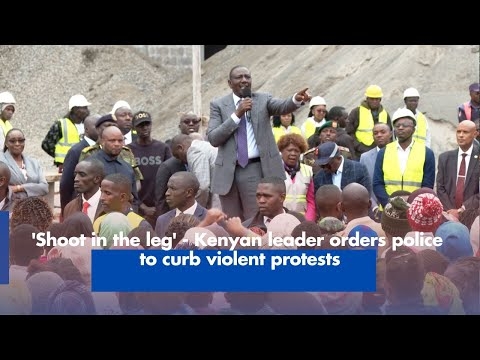As the country awaits the release of the final Building Bridges Initiative report, the window of a referendum this year to implement its recommendations is slowly shutting.
Lugari MP Ayub Savula told the Star on the phone that while the country was expected to hold the referendum this year, “several factors have come into play that will not make it easy to have one this year.
“Before coronavirus came in March, it was clear we would hold a referendum to amendment the Constitution, but with the cases increasing every other day and the challenges that come with it, the chances of a referendum this year are narrowing,” he said.
He added, “We recently passed the budget and a referendum was not factored in. It would be insensitive for us as a country to have a supplementary budget for a referendum when the country is struggling with joblessness and a poor economy, among other things resulting from Covid-19.”
He said the Ministry of Health will also have to issue fresh protocols on how Kenyans will campaign in support for or opposition to a referendum.
Majority Whip in the Senate Irungu Kang’ata insists, however, there is still a window of opportunity for the country to hold a referendum before end of the year.
“We still have sufficient time for a referendum this year. The BBI report will soon be out, then the President will give the country direction,” he told the Star on the phone.
The BBI task force chaired by Garissa Senator Yusuf Haji completed writing its report on June 30 and has been waiting for President Uhuru Kenyatta and ODM chief Raila Oding's availability so it can be presented.
It is understood the report that has proposed administrative, policy and constitutional changes would have already been received and its contents made public were it not for Uhuru’s handshake partner Raila undergoing back surgery in Dubai.
He came back two weeks ago and it is reported he needs time to recover at the Coast before returning to the political arena.
The former Prime Minister and his ODM brigade have joined forces with Jubilee’s Kieleweke faction in supporting the referendum. Deputy President William Ruto, who has been marginalised, has said he has no problem with a referendum.
He is concerned, however, the vote will be costly, disruptive and divisive coming less than two years to the 2022 General Election.
Both Raila and the President had given clear indications the country would hold a national plebiscite to amend the 2010 Constitution to accommodate some of the radical proposals by the Haji-team. They include expanding the Executive to include a Prime Minister and two deputies.
However, the Covid-19 pandemic has put the brakes on the process, including planning smooth execution.
On Monday, the President extended the countrywide curfew from 9pm to 4am for one month. He told police to deal with politicians violating the curfew and measures put in place by the Ministry of Health.
The government has required social distancing and banned large gatherings, including political rallies. Unless the rising Covid-19 curve is flattened, the ban will remain in place. That means no campaigning for or against the BBI proposals.
But some proposals could be passed by Parliament, except for those requiring amendment to the Constitution.
The Parliamentary route faces hurdles — political differences among parties, the reduced number of sittings in the National Assembly from three two one because of Covid-19 restrictions and timelines stipulating a constitutional amendment bill must be published for 90 days.
If the bill is out at the beginning of next month, the earliest it can be concluded is in October.
It is reported the BBI task force has proposed amendments involving the functions of Parliament, the structure of the Executive, the Independent Electoral and Boundaries Commission and the objectives of devolution.
This means that even if both the Senate and the National Assembly pass the bill with a two-thirds majority, the President would still have to forward it to the IEBC to conduct the referendum.
The National Assembly is yet to conclude debate on the Referendum Bill, key legislation that must be in place to guide implementation of the plebiscite.
And after the National Assembly has passed it, the Bill must be forwarded to the Senate for concurrence before it is forwarded to the President to sign it into law.
In addition to the shrinking economy hit by Covid-19, another warning sign is the rift over the revenue allocation formula that has split not just the Senate but also the political parties. This raises the question whether they will be able to reach a common ground.
Those following the initiative say it risks being set up for failure if implementation coincides with campaigns for 2022.
Speaking to the Star on the phone, constitutional lawyer Bobby Mkangi said several hurdles stand in the way of a referendum this year.
He said unlike general or presidential elections whose timing is pre-determined, “a referendum can be planned for and held at a time that is most appropriate and optimal for Kenyans considering the prevailing social and economic contexts.”
The lawyer, who was a member of the Committee of Experts that crafted the 2010 Constitution, cited other challenges, including reconstitution of the IEBC, enough time for consensus- building on referendum issues and the state of the economy after Covid-19 subsides.
“As I have said before, a referendum this year is not possible. There are challenges that will come with the awaited BBI report, which could see some Kenyans move to court. As a country, we have a bigger problem at the moment, more so for a country struggling with debts and a bad economy."
Uasin Gishu Woman Representative Gladys Shollei concurred, saying tight timeliness will make it impossible to have the referendum this year.








![[PHOTOS] Ruto hosts UDM leaders at State House](/_next/image?url=https%3A%2F%2Fcdn.radioafrica.digital%2Fimage%2F2025%2F07%2Fc69cdbaf-1cbd-4be3-a7e5-a42efcac7189.jpeg&w=3840&q=100)


